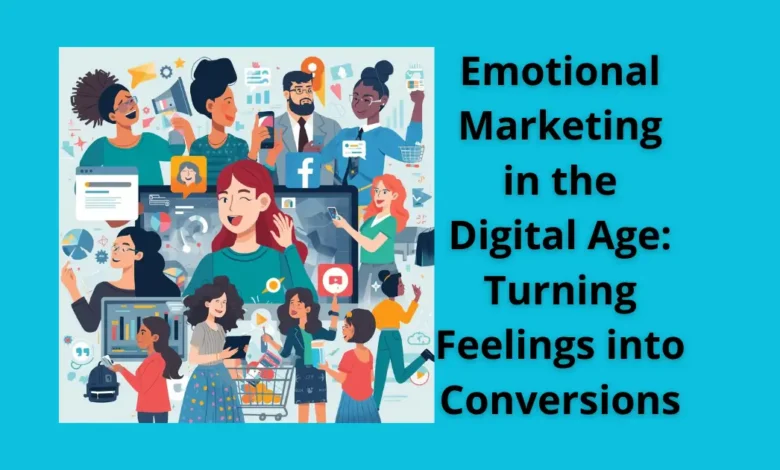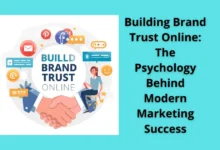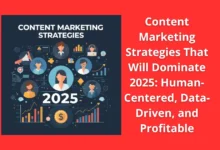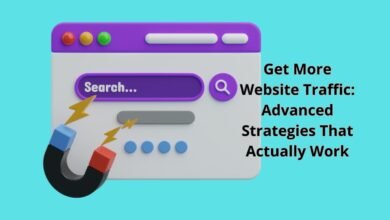Emotional Marketing in the Digital Age: Turning Feelings into Conversions

Emotional Marketing in the Digital Age focuses on connecting with audiences on a deep psychological level, transforming genuine feelings into measurable engagement, loyalty, and conversions in today’s competitive online environment.
table of contents
The Core of Emotional Marketing in the Digital Age
In 2025, consumers expect more than functional benefits from brands—they seek emotional resonance, authenticity, and shared values. Emotional marketing leverages human psychology to turn feelings into conversions, creating meaningful interactions that go beyond traditional transactional relationships.
The strategies behind successful emotional marketing in the digital age revolve around:
- Understanding Emotional Triggers
- Humans respond to core emotions such as joy, fear, surprise, trust, and anticipation.
- Crafting content that evokes these emotions increases engagement, memorability, and loyalty.
- Storytelling as a Central Tool
- Stories captivate attention and create emotional bonds. Narratives featuring relatable characters or real-life scenarios help audiences see themselves within the brand journey.
- Data-Driven Emotional Insights
- Analytics and AI can identify audience preferences, sentiment patterns, and behavioral cues, enabling marketers to tailor campaigns that resonate emotionally.
Building Brand Trust Online: The Psychology Behind Modern Marketing Success
Harnessing the Psychology Behind Emotional Marketing
Emotional Resonance Drives Decisions
Studies show that up to 90% of purchasing decisions are influenced by emotions rather than logic. Understanding the psychological basis for these reactions allows brands to position their messaging strategically, ensuring that emotions align with brand values and objectives.
Social Proof and Emotional Validation
Seeing peers react positively or share experiences reinforces emotional connections. Testimonials, user-generated content, and community engagement validate feelings and strengthen trust in the brand.
Personalization Enhances Emotional Impact
Tailoring experiences and messages to individual users amplifies emotional resonance. Personalization can include customized content, recommendations, or emotionally aware email campaigns that acknowledge user preferences and past interactions.
Implementing Emotional Marketing Strategies in Digital Campaigns
Story-Driven Content Creation
Content should evoke feelings by addressing pain points, desires, and aspirations. Techniques such as narrative arcs, visual storytelling, and immersive media (video, AR/VR) enhance emotional engagement.
Multi-Channel Emotional Engagement
Consistent emotional cues across social media, email marketing, website design, and advertisements create a cohesive brand experience. The more seamless the emotional narrative, the stronger the audience’s connection.
Leveraging Analytics and AI
AI-driven sentiment analysis and engagement tracking allow marketers to measure emotional impact, optimize messaging, and predict audience responses. Real-time adjustments improve campaign effectiveness and ROI.
Ethical Emotional Marketing
Authenticity is paramount. Emotional marketing must avoid manipulation or deceptive tactics. Brands that foster genuine emotional connections cultivate long-term loyalty rather than short-term gains.
Benefits of Emotional Marketing in the Digital Age
- Higher Conversion Rates – Emotionally connected customers are more likely to act and convert.
- Brand Loyalty – Emotional bonds create long-term commitment and repeat engagement.
- Enhanced Memorability – Content that evokes feelings is more easily remembered and shared.
- Differentiation in Competitive Markets – Emotional resonance distinguishes brands from functional competitors.
Emerging Trends in Emotional Digital Marketing
- Short-Form Video Storytelling – Quick, impactful narratives capture attention and evoke strong emotions.
- Interactive Experiences – Polls, quizzes, and gamification increase emotional engagement.
- Voice and Conversational Marketing – Personalized, empathetic interactions through AI assistants enhance emotional connection.
- Sustainability and Purpose-Driven Campaigns – Consumers emotionally resonate with brands advocating ethical and social causes.
Conclusion
Emotional marketing in the digital age transforms ordinary interactions into powerful, conversion-driving experiences. By leveraging psychological insights, authentic storytelling, and data-driven personalization, brands can foster loyalty, trust, and measurable growth. In an era dominated by digital noise, emotion is the currency that captures attention, builds connection, and turns feelings into tangible business results.
Frequently Asked Questions (FAQ)
Q1: What is emotional marketing?
A: Emotional marketing focuses on creating deep psychological connections with audiences, leveraging feelings to drive engagement, loyalty, and conversions.
Q2: How does storytelling influence emotional marketing?
A: Stories make content relatable, memorable, and emotionally engaging, helping audiences connect with the brand on a personal level.
Q3: Can AI enhance emotional marketing?
A: Yes, AI can analyze sentiment, predict audience reactions, and personalize messaging to maximize emotional impact.
Q4: Is emotional marketing ethical?
A: When done authentically, emotional marketing builds trust and loyalty without manipulation or deception.
Q5: Why is personalization important in emotional marketing?
A: Personalized experiences acknowledge individual preferences and history, strengthening emotional resonance and connection.
Discover more from Feenanoor
Subscribe to get the latest posts sent to your email.



